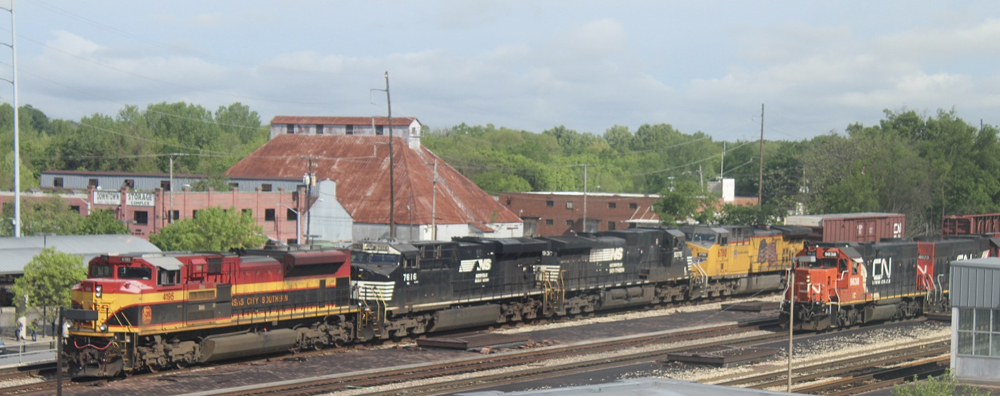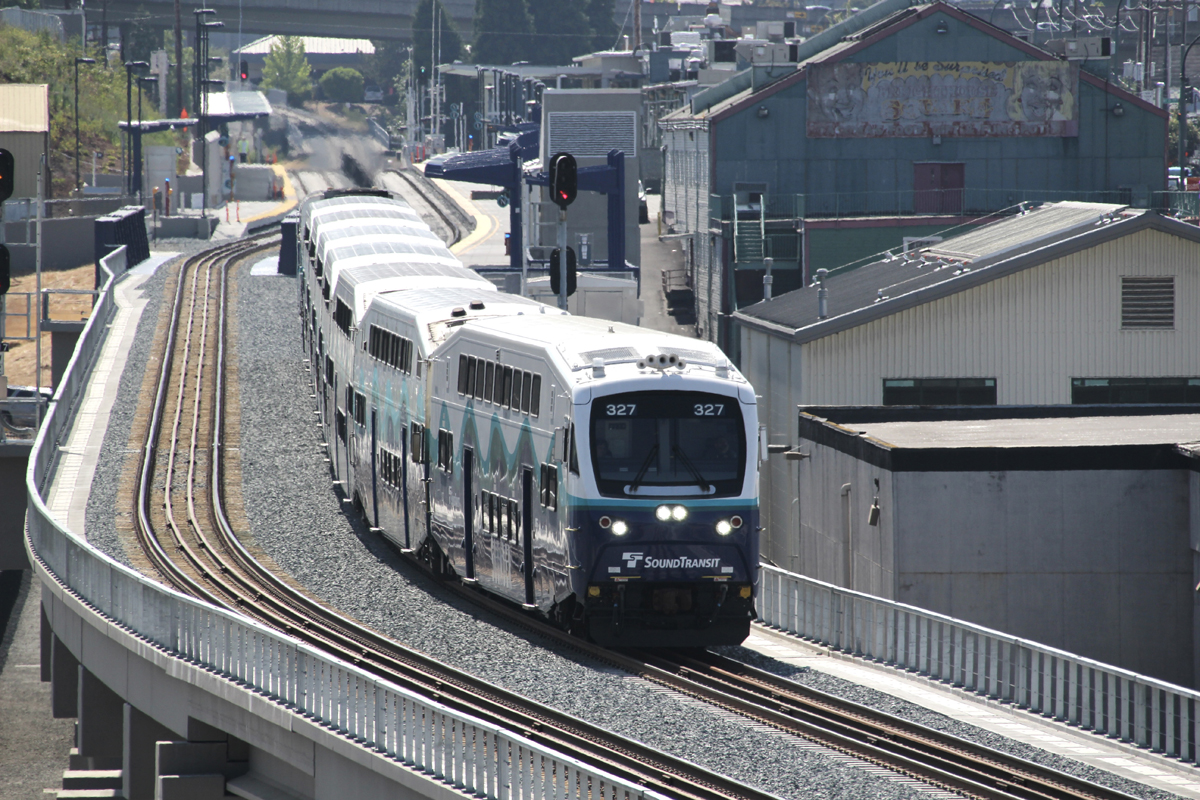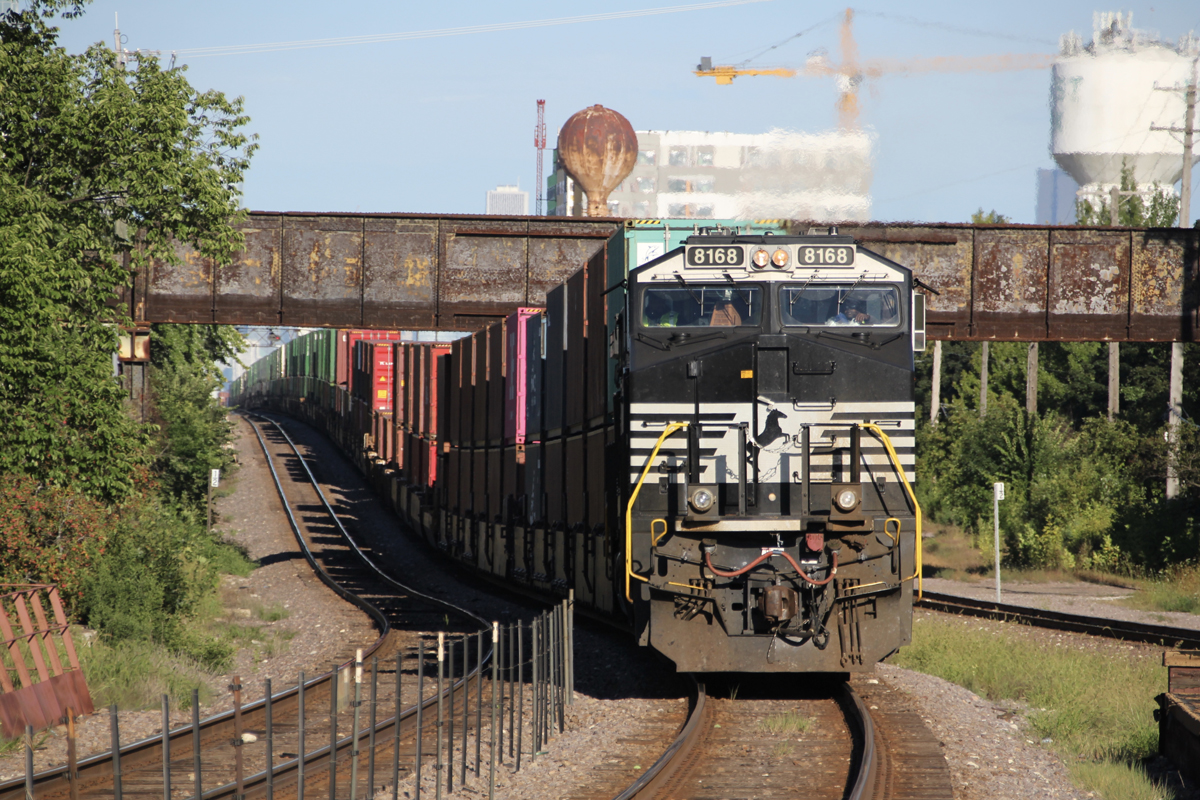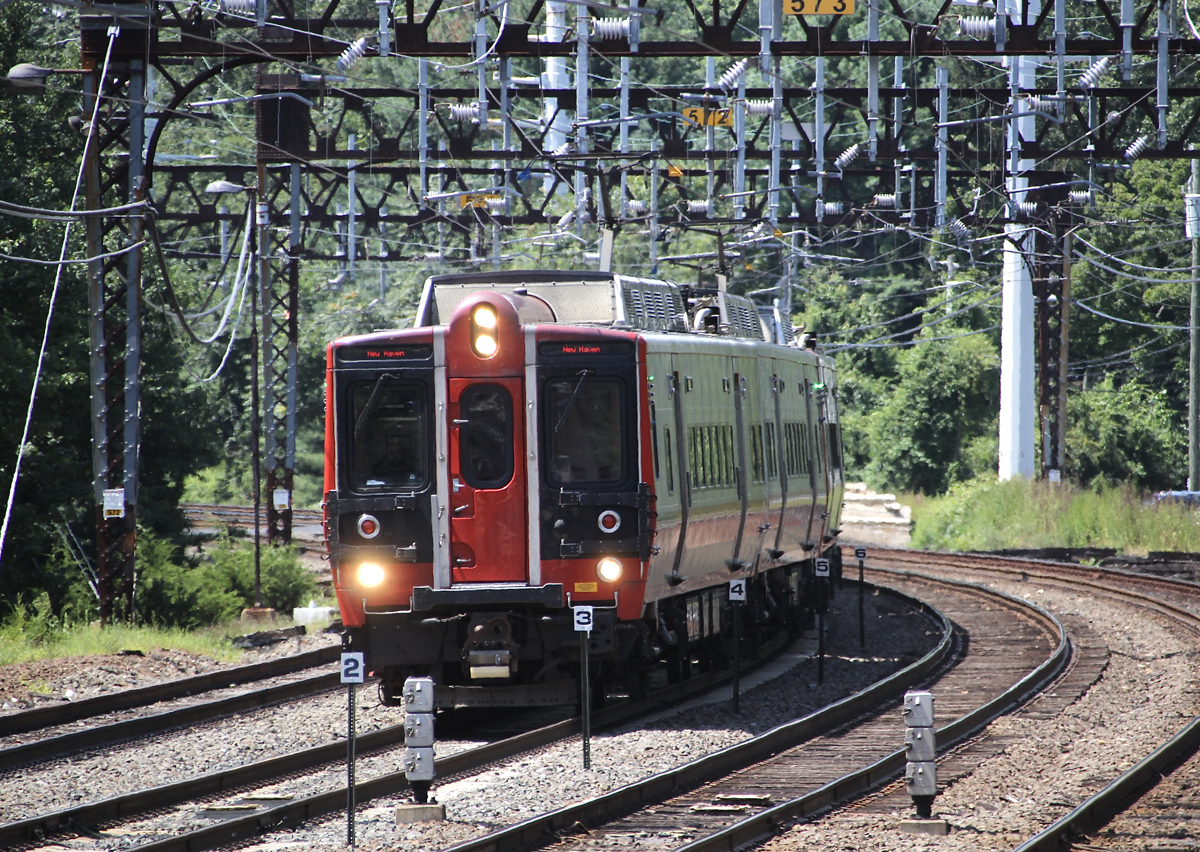
WASHINGTON — Canadian Pacific and Kansas City Southern have vastly overestimated traffic and revenue growth that would flow from their proposed combination, making the rest of their merger application a house of cards, Canadian National claims in a regulatory filing.
The CP-KCS merger application is so “riddled with errors” that the Surface Transportation Board should not be able to rely on it to determine whether the $31 billion merger is in the public interest, CN contends in a 409-page document filed late Monday.
CP says combining with KCS will produce $1 billion in new revenue through a combination of diverting traffic from competing railroads, converting freight from highway to rail, and the introduction of single-line service. Canadian Pacific Kansas City would capture 80,000 carloads and 137,000 intermodal containers currently handled by competing railroads, along with taking 64,000 truck shipments off highways annually, according to the railways’ merger application.
But CN says the revenue figure is half of what CPKC projects, or $501.8 million, due to inaccurate and unrealistic traffic growth projections. And CN claims that calls into question CPKC’s operating plan, proposed capital investments, and the environmental impact of the merger.
“Reliable traffic volume and revenue estimates are critical to virtually every other element of the Application,” consultant David Hunt wrote in CN’s filing. “A feasible operating plan must be based on an accurate count of cars and trains moving along the network. The incremental increase in traffic volume likewise informs decisions regarding the capital investment required to handle that traffic safely and efficiently. Accurate train data is essential to measuring the environmental impacts of the proposed transaction.”
CN contends that in order for CP’s rail diversion projections to come true, shippers would have to agree to pay higher rates and use CPKC routes that are, on average, 217 miles longer than competing routes where this traffic moves today. The longer routes would drive up shippers’ costs, as well, due to longer cycle times for their private car fleets, CN argues.
Last week CP CEO Keith Creel told an investor conference that his railway’s $1 billion merger-related revenue growth estimate was conservative. CP and KCS did their homework, Creel says, and arrived at growth estimates after detailed and ongoing discussions with current customers, particularly automotive, intermodal, and agricultural shippers.
CN and CP last year battled to acquire KCS and to become the first railroad to connect Canada, the U.S., and Mexico. CN lost out after an unfavorable regulatory ruling in August, and CP and KCS reached a merger agreement in September.
CN’s filing includes several requests for conditions on the CP-KCS merger, including the divestiture of KCS’s former Gateway Western routes linking Springfield, Ill., with Kansas City and St. Louis.
If federal regulators make divestiture a condition of the CP-KCS merger, CN says it will spend $250 million to improve the trackage and tie it to its former Illinois Central Gilman Subdivision to create a new single-line route from Kansas City to Michigan and Eastern Canada [see “CN touts proposal to acquire KCS route …,” Trains News Wire, Feb. 8, 2022].
CP and KCS say their combination would be an entirely end-to-end merger since their networks touch only at Kansas City. But in its regulatory filing, CN says CP and KCS ignore the fact that KCS’s Springfield Line parallels CP’s route linking Kansas City and Chicago.
“An unconditioned merger would permanently eliminate the Springfield Line as a competitive alternative, instead favoring the parallel CP line. The Board should condition approval of the merger on divestiture of the Springfield Line so that CN can preserve and upgrade the route and turn it into a high speed, efficient route — competing for traffic not only between Kansas City and Chicago, but beyond to Detroit and Eastern Canada,” CN argues. “This condition can be imposed without impeding a combined CPKC in any way. CN proposes to grant back to KCS haulage rights that will enable KCS to access customers on the Springfield Line. Thus, every customer on the Springfield Line would retain access to KCS, while gaining access to CN, and would benefit from CN’s investments in the line. To protect the public interest, merger approval should be conditioned on this targeted divestiture.”
CN also urged the board to require that CPKC keep interchange gateways open on commercially reasonable terms, develop a service assurance plan, and impose five years of post-merger monitoring of CPKC service.
— Updated at 7:30 a.m. CST on March 2 with link to CN filing.














Whatever happened to “Never interrupt your enemy when he is making mistake”? Or perhaps CN don’t really believe their own figures.
Amidst all this …. yes, whining ….. what has so far not been mentioned is the historical problem with Kansas City’s position on the continent. With the imbalance of revenue (loaded) v. “lesser”-revenue (lots of empties) traffic heavily-weighted
West to East, interlining at KC means the western lines will continue to have to
short-haul themselves to give up eastbound revenue there rather than further
East. Even the merged CPKC will have an internal bias to hang on to revenue as
far as they can (online via Chicago) rather than let go of it at …… Springfield ?
So if CN does get the line (ha), will BN and UP be anymore willing to “give
it up” at KC ?
Either way, Chicago post-merger is in for a whopping big increase in through traffic.
Whining by CN? It actually looks like a viable “we’ll put our money where our mouth is” proposal to create a new route from eastern-US and Canadian points to the major UP-BNSF gateway at Kansas City without impacting the primary selling point of the CP-KCS merger–their one-connection end-to-end Mexico-USA-Canada railroad.
Tough look for
CN. Lost the battle and now look petty whining about it. Quite embarrassing honestly and as a share holder you’re embarrassing me. Get your $hit together and move on.
Always listen to your cat!
So most of the other objections to the merger are that it will generate too much traffic here or there, while this one says it will not generate as much traffic as promised. Whew!
I wonder if UPRR and CNR have hired Vladimir Putin’s public relations flack.
The louder CN whines, the more sour grapes it becomes. If it is so bad for CP then why was it good for CN? Honestly, the louder CN gets, the more successful the merger will likely be.
If it is so bad, why would CN want the Springfield Sub?
If CN “wants to compete” then tell TCI to chill and put up the raw dollars and extend themselves past the Rio Grande. Put up of shut up.
More whining.
Before the KCS merger saga, I was a big fan of two railroads, those two being BNSF and CNR. Since the KCS arguments began, my cat Burlington told me that me being a fan of both those railroads was one too many.
Start with the conclusion — that CN should have walked away with KCS — then look around for some arguments or facts to support that conclusion.
I’ve always wondered why Canadian railroads were allowed to come in and buy/operate US railroad?
For the same reason American companies are allowed to come in and buy/operate Canadian companies.
Watco and Genesee and Wyoming being railroad examples and United States Steel being another example. Fort
So everything CP an KCS says is wrong and everything we (CN) says is right. I don’t know about the trackage that there talking I lived on the east coast all my life BUT from what I have been reading here seems like CN are a bunch of sore losers.